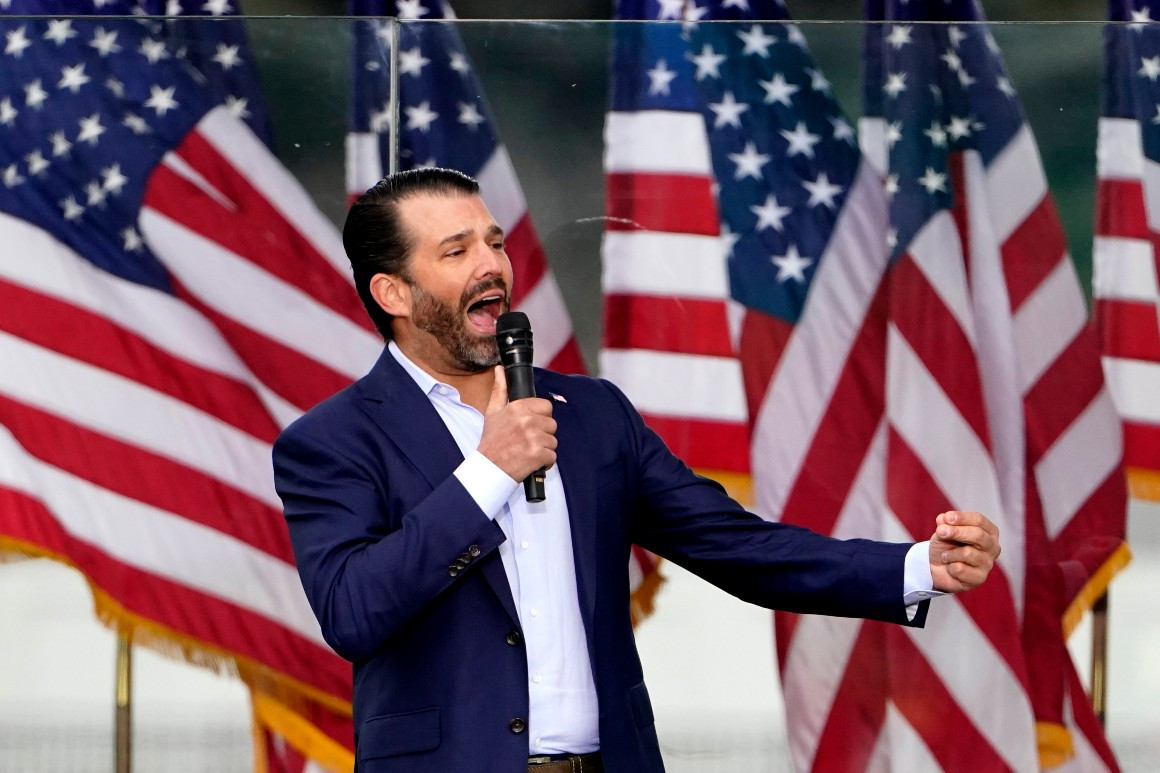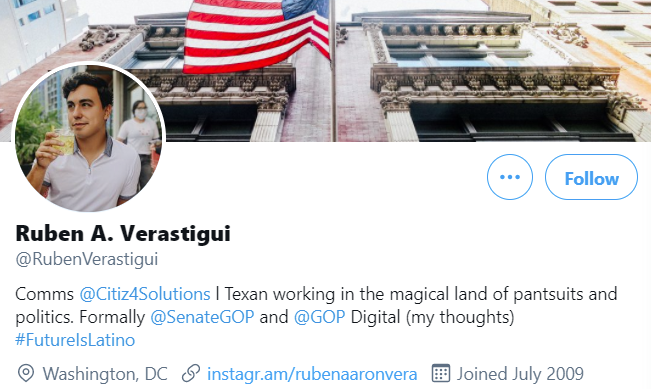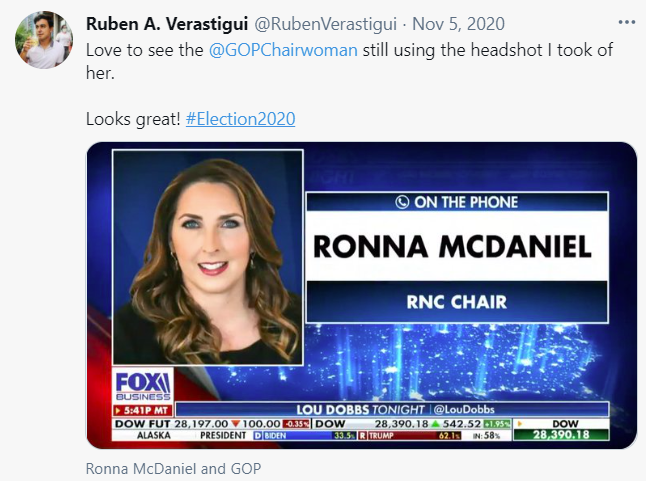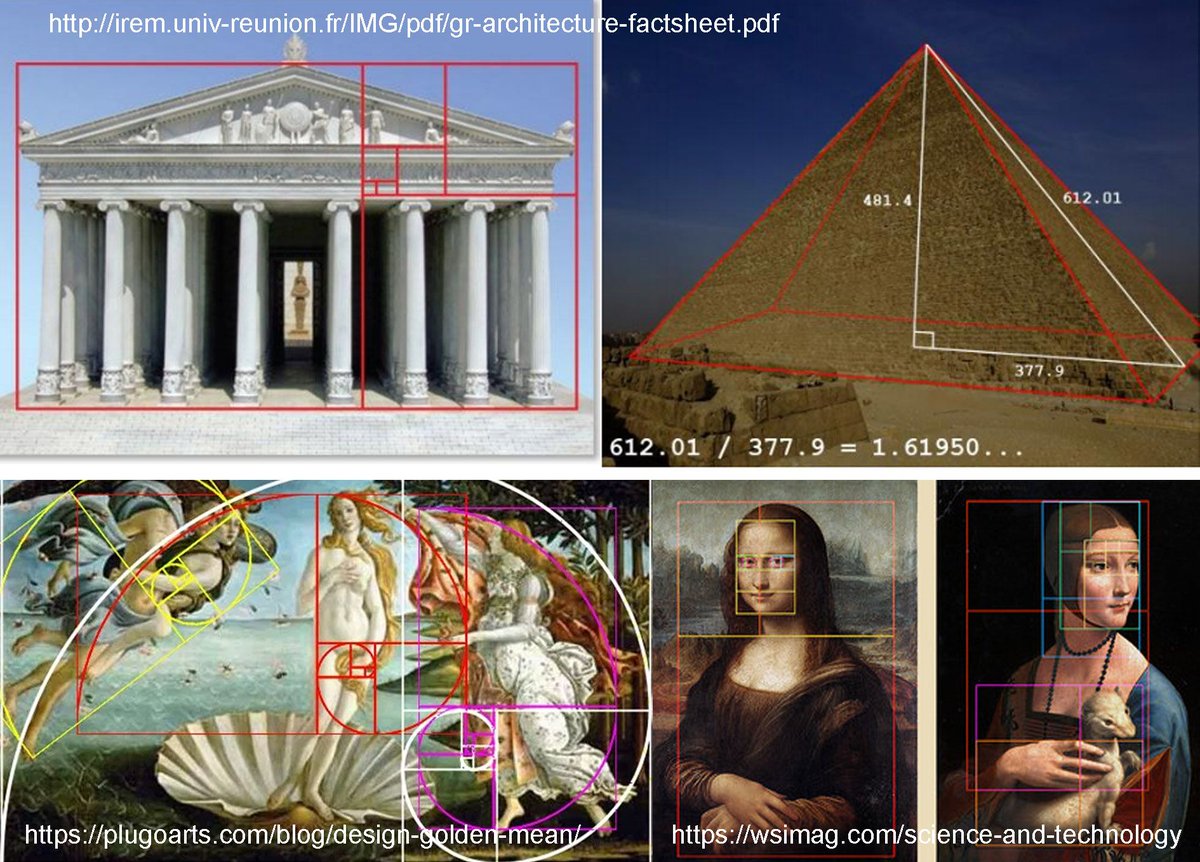(THREAD) Media has yet to do a deep dive on precisely what Trump *said* in his January 6 speech in DC\u2014a speech now called an "incitement to insurrection," and the basis for an article of impeachment coming Monday. This thread unpacks the speech. I hope you'll read on and RETWEET. pic.twitter.com/ba6eaNScNW
— Seth Abramson (@SethAbramson) January 9, 2021
(THREAD) To understand the second impeachment of Donald Trump, we must understand the words that preceded and augmented his January 6 incitement of insurrection. This thread unpacks four key speeches—Don Jr., Giuliani, Mo Brooks, and Eric Trump. I hope you'll read on and RETWEET.

Trump Jr.'s speech on January 6—which ended less than an hour before his father incited an insurrection—is one of the most inscrutable of the day, because its beginning includes some promisingly responsible rhetoric. Then it descends into madness and chaos.
A few notes. First, understand that Donald Trump Jr. is *shouting* his entire speech—something very few other speakers did.
And it has been replaced, Don Jr. thunders, by... well, whatever my father is about to ask you to do.
"This is the Republican Party that will fight....this is the Republican Party that's not just going to roll over and die because the Democrats would like you to!"
He's asking for the mob to do the *bold and unexpected*.
You have to really follow Trump Jr. closely here to see what he does with his rhetoric about Georgia. Here's what he says:
"Well, I don't like the way the game is played, so let's take our ball and go home."
The idea is that the *new* GOP—Trump's—(a) shows up [at the Capitol] and thereby (b) *changes the game*.
More from Seth Abramson
More from Politics
Ruben Verastigui is (allegedly) a horrifying pedo monster and has been on the digital teams for the @SenateGOP, National @GOP and the Trump campaign. I didn't want to talk about him, but I think it's important.

The allegations against RV are among the most horrifying I have read. It involves possessing and sharing images of rape of infants and plans to take action in the real world of that nature. I don't really recommend reading the details, but they are here.
These allegations were first brought to light by @jaredlholt who has an excellent thread. He warns people that they may want to avoid the end of the thread because it includes shots of the specific allegations. I make the same warning.
RV was a main stage speaker at the 2013 March For Life.
RV did a headshot for Ronna McDaniel, GOP Chairwoman


The allegations against RV are among the most horrifying I have read. It involves possessing and sharing images of rape of infants and plans to take action in the real world of that nature. I don't really recommend reading the details, but they are here.
These allegations were first brought to light by @jaredlholt who has an excellent thread. He warns people that they may want to avoid the end of the thread because it includes shots of the specific allegations. I make the same warning.
NEW: D.C. Police arrested Ruben Verastigui -- a former "senior digital strategist" for the Senate Republican Conference -- on charges of distribution of child pornography resulting from a time span that allegedly included his time at the SRC. How I confirmed ID in thread (1/?) pic.twitter.com/AcZ7c2sBKb
— Jared Holt (@jaredlholt) February 6, 2021
RV was a main stage speaker at the 2013 March For Life.
RV did a headshot for Ronna McDaniel, GOP Chairwoman

You May Also Like
Great article from @AsheSchow. I lived thru the 'Satanic Panic' of the 1980's/early 1990's asking myself "Has eveyrbody lost their GODDAMN MINDS?!"
The 3 big things that made the 1980's/early 1990's surreal for me.
1) Satanic Panic - satanism in the day cares ahhhh!
2) "Repressed memory" syndrome
3) Facilitated Communication [FC]
All 3 led to massive abuse.
"Therapists" -and I use the term to describe these quacks loosely - would hypnotize people & convince they they were 'reliving' past memories of Mom & Dad killing babies in Satanic rituals in the basement while they were growing up.
Other 'therapists' would badger kids until they invented stories about watching alligators eat babies dropped into a lake from a hot air balloon. Kids would deny anything happened for hours until the therapist 'broke through' and 'found' the 'truth'.
FC was a movement that started with the claim severely handicapped individuals were able to 'type' legible sentences & communicate if a 'helper' guided their hands over a keyboard.
For three years I have wanted to write an article on moral panics. I have collected anecdotes and similarities between today\u2019s moral panic and those of the past - particularly the Satanic Panic of the 80s.
— Ashe Schow (@AsheSchow) September 29, 2018
This is my finished product: https://t.co/otcM1uuUDk
The 3 big things that made the 1980's/early 1990's surreal for me.
1) Satanic Panic - satanism in the day cares ahhhh!
2) "Repressed memory" syndrome
3) Facilitated Communication [FC]
All 3 led to massive abuse.
"Therapists" -and I use the term to describe these quacks loosely - would hypnotize people & convince they they were 'reliving' past memories of Mom & Dad killing babies in Satanic rituals in the basement while they were growing up.
Other 'therapists' would badger kids until they invented stories about watching alligators eat babies dropped into a lake from a hot air balloon. Kids would deny anything happened for hours until the therapist 'broke through' and 'found' the 'truth'.
FC was a movement that started with the claim severely handicapped individuals were able to 'type' legible sentences & communicate if a 'helper' guided their hands over a keyboard.
























